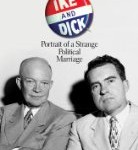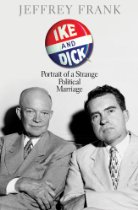In the capital of the world’s mightiest nation, until the recent cloudburst of scandal, the preoccupations were the rights of men who want to be women and women who want to be men; the rights of illegal immigrants (no longer allowed to be referred to as such) to stay here and vote for Democrats; and the right of government to abridge the Second Amendment and confiscate our money to feed an expanding army of bureaucrats managing unworkable programs that no one understands—including the legislators who vote for them.
Meanwhile, in the capital of what was once the Republic of Texas, people tend to view the preoccupations of the Northeast, dwelt on by the national media to the near exclusion of anything of concern west of the Mississippi, as largely frivolous and irrelevant.
Erica Grieder, a senior editor at Texas Monthly and formerly the southwest correspondent for the Economist, has written a splendid book about the rich history and the social, political, and economic strengths and weaknesses of the Lone Star State, where the essentials of the American Dream are still taken seriously. “Americans tend to believe in economic mobility, in the idea that people can get ahead through talent and hard work….Texans are, if anything, even more committed to this belief than other Americans.” She quotes Julian Castro, the Democratic mayor of San Antonio, giving the keynote speech at his party’s 2012 national convention: “Now, in Texas, we believe in the rugged individual. Texas may be the one place where people actually still have bootstraps, and we expect folks to pull themselves up by them.”
Although the state contains the largest part of our border with Mexico, its immigration policy is “relatively relaxed,” and the Republican Party gets a much higher percentage of the Latino vote in Texas than in the country as a whole. The fact that Texas Republicans and Latino immigrants, as well as long-established Latino citizens, share many of the same economic and social beliefs and values casts doubt on the ultimate chances for success of national Democrats who hope to turn Texas from red to blue. Nor are those issues resonating among the left necessarily meaningful to Texas Democrats. “Compared to their national counterparts, they’re in favor of business and skeptical of taxes,” Grieder writes. “If transplanted to California, a typical Texas Democrat would be reclassified as a moderate Republican.”
The Texas Model, or the Texas Miracle, as Governor Rick Perry liked to call it during his disastrous presidential primary run, was based on a four-part “recipe” of low taxes, low regulation, tort reform, and “don’t spend all the money.” If it worked in Texas, Perry asked, why not in the rest of the country?
“The idea,” writes Grieder, “is almost as simple as he described.” Texas is one of only seven states without an individual income tax, and one of four without a corporate income tax. (Businesses pay a small tax on sales instead.) Combined with its coolness toward regulation, its suspicion of government stretching back to Reconstruction, and its respect for private enterprise, Texas provides a model for any part of the country willing to set aside the conventional collectivist economic pieties.
As Grieder points out, from June 2009-2011, the Texas model created over 40 percent of the nation’s net new jobs. And to top it off, she writes that, according to an analysis published in theEconomist in 2011, “Texas was among the 20 states that paid more in federal taxes than they received in federal funds.”
All of which is anathema to the current administration in Washington and to statists, like the hysteric Paul Krugman, who believe our economic problems can’t be solved without substantial tax increases. And when Governor Perry swaggered onstage during last year’s dreadful Republican primaries, asserting that the Texas way provided an alternative model for the nation, the hysteria was palpable. Krugman charged in the New York Times that the Texas miracle was a myth, an assertion vituperatively seconded by all the usual leftist suspects who control the Washington-New York media corridor.
As Grieder writes, Perry’s entrance into the race brought on near-panic, and “the national left’s reaction to Rick Perry’s narrative of jobs and growth in Texas looked like Elisabeth Kübler-Ross’s five stages of grief….Before the Democrats could reach the depression stage, though, they got a real miracle. Perry’s presidential campaign totally collapsed.”
In retrospect, what Grieder calls the “‘oops’ debate”—the uncomfortable moment of live television when Perry could not remember which cabinet departments he proposed to eliminate—unhorsed the governor, who entered the race with a certain cockiness that can so irritate non-Texans. (Remember the swagger of George W. Bush.) But like many Texans before him, Perry underestimated the opposition, rode into battle badly underprepared, and took a spectacular spill. As a result, writes Grieder, “Democrats lost interest in the supposed Texas miracle. As long as Perry wasn’t going to be the nominee, there was no longer any reason to worry about it.”
But as General Santa Anna discovered at San Jacinto, Texans learn from their mistakes, and Perry is back in the saddle, recruiting businesses from other states, selling the industrial policy which, as Grieder points out, has effectively saved Texas from becoming a one-horse, petroleum-dependent economy. “The Texas model isn’t an accident, in other words,” writes Grieder, who while not being a Perry partisan (she is rigorously non-political), believes that the economic policies he preaches and puts into practice might well provide a national alternative economic model.
On a recent recruiting trip to Chicago, where he spoke at the 2013 BIO International Convention, Perry delivered his recruiting pitch in a widely aired and much discussed ad:
This is Texas Gov. Rick Perry, and I have a word of advice for employers frustrated by Illinois’ short-sighted approach to business: you need to get out while there’s still time. The escape route leads straight to Texas, where limited government, low taxes and a pro-business environment are creating more jobs than any other state. I’ll be in Chicago next week to talk about opportunities in Texas, where we’re always open for business….it may be time for your company to hit the emergency exit.
The invitation prompted angry responses from Mayor Rahm Emanuel, slipping in the polls and struggling to come to grips with a record rainfall complicated by the inability of the city’s massive and massively expensive Deep Tunnel project, seemingly under construction since the days of Deep Throat, to drain off the flood waters. Governor Pat Quinn, no doubt with rainfall on the brain, responded quirkily, as is his wont: “His state, frankly, is water-challenged, and any company thinking of going to Texas better check their water.”
There are some conservative critics of Rick Perry’s successful campaign to land businesses from states like California and Illinois. Teresa Mull, blogging on TAS’ website, questioned the ultimate results of those efforts: “You can take the liberal out of the blue state, but can you take the blue state out of the liberal?” But many blue-state businessmen, offered the prospect of freedom from onerous regulations and taxes extorted by governments fighting to stave off bankruptcy, have easily shed those blue cloaks and emulated Davy Crockett, quoted approvingly by Mull: “You may go to hell. I’m going to Texas.”
This review was first published in the American Spectator and used here with permission of the author, John R. Coyne Jr., who is my father.





